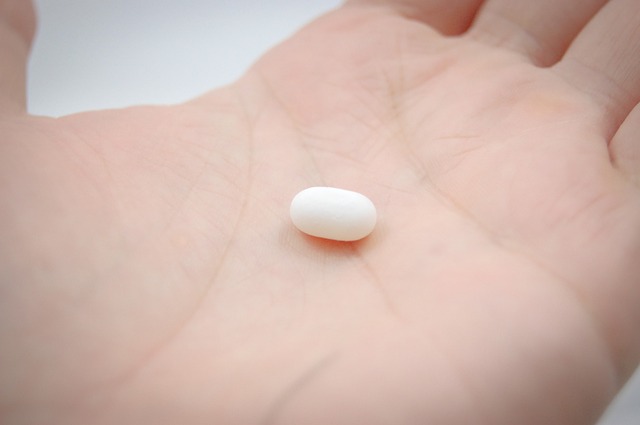Painkiller abuse is so prevalent that over half of Americans have been affected by the epidemic. While six percent of people have abused pain medication, 56 percent know someone who has abused, been addicted to or died from an overdose of painkillers.
Pain itself is pervasive in America – up to half of people who see a primary care provider have chronic pain. Most people who become addicted to painkillers don’t set out to do so. A person may become addicted to pain pills even when they are prescribed. In these cases, a person develops a tolerance to the drug and begins to use the drug more often than prescribed or in higher doses than prescribed.
Are All Painkillers Addictive?
Due to the increasing prevalence of painkiller addiction, healthcare providers are encouraged to treat pain with non-addictive medications.
In cases of mild pain, you are likely to first be prescribed a non-opioid analgesic like aspirin, acetaminophen (Tylenol) and nonsteroidal anti-inflammatory drugs (Advil, Motrin and Aleve). These drugs can treat pain and reduce the inflammation that causes pain. These painkillers are not addictive, but can be harmful to the liver or kidneys if taken in large doses over long periods.
People who suffer from back and neck pain may be prescribed muscle relaxants like carisoprodol (Soma) or cyclobenzaprine (Flexeril). Muscle relaxants can be addictive and a person who is addicted to muscle relaxers can have serious withdrawal symptoms like hallucinations and seizures. Muscle relaxers cause sedation and confusion and shouldn’t be mixed with alcohol or other drugs.
Opioid painkillers are the most addictive and dangerous pain medications. In 2017 alone, 48,000 people died from opioid overdose. Some commonly prescribed opioid painkillers are fentanyl, hydrocodone and hydrocodone mixed with acetaminophen (Lorcet, Lortab, Norco, Vicodin).
While opioid painkillers are addictive and cause physical dependency, it is also possible to become psychologically addicted to painkillers. People who are addicted to painkillers use them despite negative consequences that impact health, relationships, career or education, even if not physically dependent.
Signs You’re Becoming Dependent on Your Painkiller
It’s common for a person who is addicted to painkillers to be unconcerned about their drug use until it is brought to attention by loved ones. If people have expressed concern about your painkiller use, ask yourself if you have any of these signs of dependency.
- Do you take your painkiller more often than prescribed or in higher doses than prescribed?
- Have you ever had a prescription for the same drug from more than one doctor?
- Have you ever stolen or sold a prescription?
- Have you ever forged a prescription or stolen a prescription pad? Have you thought about doing so?
- Have you been acting out of character, had mood swings, unexplained hostility or anger?
- Do you suddenly feel very anxious for no identifiable reason?
- Do you need much more sleep than before you started taking painkillers? Do friends and family say you look drunk or sleepy?
- Do you feel paranoid that certain people are against you?
- Do you have trouble remembering details of your day?
- Have your relationships suffered since you started using painkillers?
Who is at Risk for Painkiller Addiction?
People of all ages, sexes and races can become addicted to painkillers, but some risk factors make a person more likely to develop an addiction. Mental illnesses like depression, anxiety and posttraumatic stress disorder are associated with a higher risk for misuse of painkillers. Men are more likely to abuse painkillers than women, and men 18-34 years old are the most likely to become addicted.
Reducing the Risk for Painkiller Addiction
Many people are hesitant to take painkillers because of their addictive potential. However, living with chronic or post-surgery pain can impact a person’s ability to function and lead to depression. In many cases, pain can be well controlled with low doses of painkillers.
- Ask the pharmacist exactly how to take the new medication and follow these directions.
- Do not take the medication with other drugs or alcohol.
- Talk to the prescribing provider before reducing your dose or stopping the medication.
- Talk to your provider if your pain isn’t well controlled at the dose and frequency that was prescribed.
Recovering from Painkiller Addiction
Physical dependence on opioids or muscle relaxers should be managed at an inpatient addiction treatment facility. In these specialized recovery centers, a team of addiction professionals can address both the physical and emotional components of recovery and sobriety.
The link between addiction to pain medications and mental illness is so substantial that everyone who is addicted to painkillers should be screened for mental health conditions. For many people who live with both mental illness and addiction, treating the mental illness is a critical aspect of recovery.
People who are addicted to painkillers may still need to treat their pain. Sufferers of chronic pain can benefit from non-pharmacologic treatments, including physical medicine like physical therapy, behavioral medicine like cognitive behavioral therapy, interventional therapies like acupuncture or yoga, and even surgical medicine in some cases.
Image by Michal Jarmoluk from Pixabay
Any Web sites linked from Medical News Bulletin site are created by organizations outside of Medical News Bulletin and are the sole responsibility of those organizations. These links are strictly provided by Medical News Bulletin as a convenience to you for additional information only. Medical News Bulletin does not approve or endorse the content on any third-party Web sites and is not responsible for the content of linked third-party sites or third-party advertisements, as well as does not make any representations regarding their content or accuracy. Your use of third-party web sites is at your own risk and subject to the terms and conditions of use as per such sites policies. Medical News Bulletin does not provide specific medical advice, diagnosis or treatment and hereby disclaims any assumption of any of the obligations, claims or liabilities..



